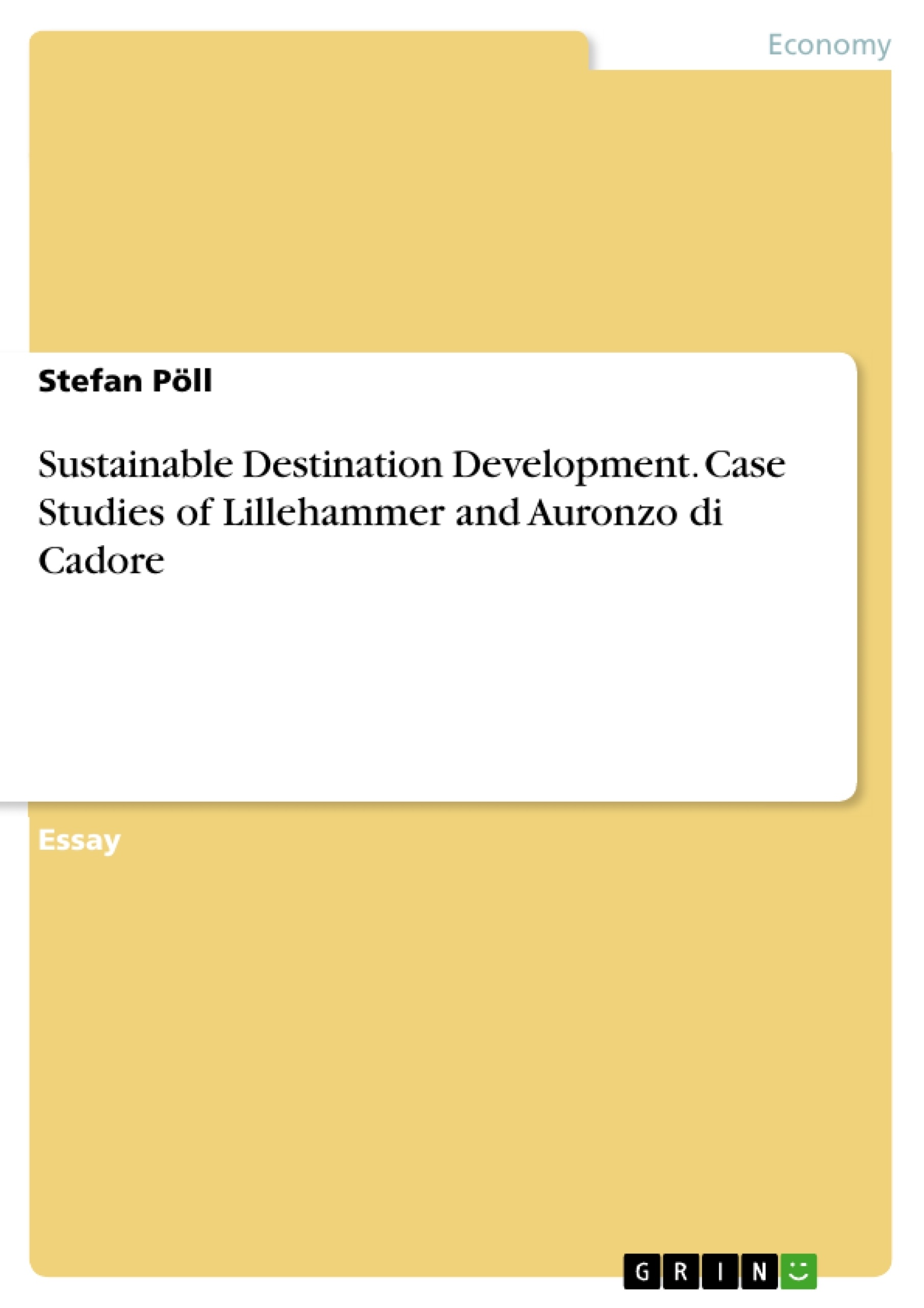Within the last decades, tourism has become one of Europe’s most important and fastest growing sectors. Europe is the world’s largest tourist receiving region and is also one of the key tourism source markets. Thereby, tourism has a major impact on the natural as well as on the built environment. In addition to that, it can have positive or negative effects on the wellbeing and culture of the host population, depending on how tourism is developed and managed. In order to avoid the negative effects tourism can have, and to ensure the long-term sustainability of the tourism sector, there is a need for policies and plans at all levels but in particular at the local destination level where tourism takes place. Since there is a clear need for sustainable tourism development, this essay sets out to discuss what sustainable destination development looks like by using concrete examples what sustainable destination development is and which effects it can have to the different levels of stakeholders.
Inhaltsverzeichnis (Table of Contents)
- Sustainable Destination Development
- Defining Sustainability and Destination
- The Theoretical Framework of Sustainable Destination Development
- Dimensions of Sustainability
- Stakeholder Involvement
- Case Studies
- The Case of Lillehammer
- The Case of Auronzo di Cadore
Zielsetzung und Themenschwerpunkte (Objectives and Key Themes)
This essay aims to explore the concept of sustainable destination development by defining key terms and examining its theoretical framework. The essay then delves into the importance of stakeholder involvement and uses concrete case studies to illustrate practical applications of sustainable destination development.
- Defining Sustainability and Destination
- Theoretical Framework of Sustainable Destination Development
- Dimensions of Sustainability (Economic, Ecological, and Socio-cultural)
- Importance of Stakeholder Involvement
- Practical Examples of Sustainable Destination Development
Zusammenfassung der Kapitel (Chapter Summaries)
- Sustainable Destination Development: Introduces the essay's objective to discuss sustainable destination development and the need for sustainable tourism policies. It defines the terms sustainability and destination, highlighting their importance in understanding the concept.
- The Theoretical Framework of Sustainable Destination Development: Explores the historical evolution of the concept and its significance in tourism planning and development. It emphasizes the need for sustainable tourism practices to avoid detrimental impacts on the environment and local communities.
- Dimensions of Sustainability: Discusses the three key dimensions of sustainability: economic, ecological, and socio-cultural. It emphasizes that achieving sustainable development requires balancing these dimensions.
- Stakeholder Involvement: Recognizes the importance of stakeholder involvement in the sustainable development process. It identifies four key stakeholder groups and emphasizes their role in enhancing the quality of tourism products and services.
- The Case of Lillehammer: Presents the case study of Lillehammer, highlighting the importance of cooperation, branding, product development, and credibility in achieving sustainable tourism development.
Schlüsselwörter (Keywords)
Sustainable destination development, sustainability, tourism, destination, economic sustainability, ecological sustainability, socio-cultural sustainability, stakeholders, case study, Lillehammer, Auronzo di Cadore.
Frequently Asked Questions
What is sustainable destination development?
It involves policies and plans at the local level to ensure tourism development balances economic, ecological, and socio-cultural dimensions to prevent negative impacts.
Why is stakeholder involvement important in tourism?
Involving stakeholders enhances the quality of tourism services and ensures that the needs of the host population and the environment are met alongside business interests.
What lessons can be learned from the Lillehammer case study?
The Lillehammer case highlights the importance of cooperation, branding, and credibility in building a sustainable tourism destination.
What are the three dimensions of sustainability in tourism?
The three dimensions are economic (affordability/income), ecological (environment protection), and socio-cultural (wellbeing of the host population).
Which European destinations are featured as case studies?
The essay features case studies from Lillehammer (Norway) and Auronzo di Cadore (Italy).
- Arbeit zitieren
- Stefan Pöll (Autor:in), 2018, Sustainable Destination Development. Case Studies of Lillehammer and Auronzo di Cadore, München, GRIN Verlag, https://www.hausarbeiten.de/document/449007


